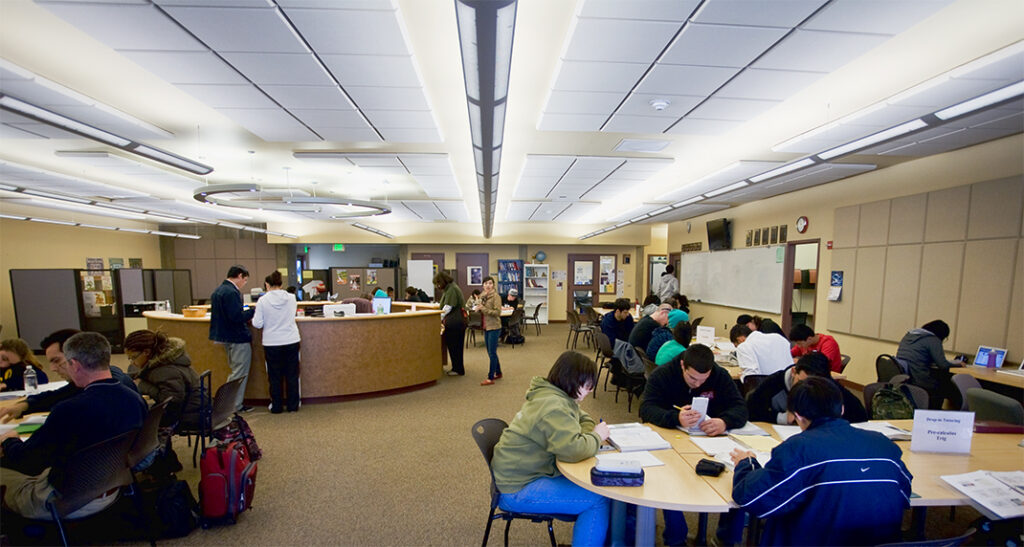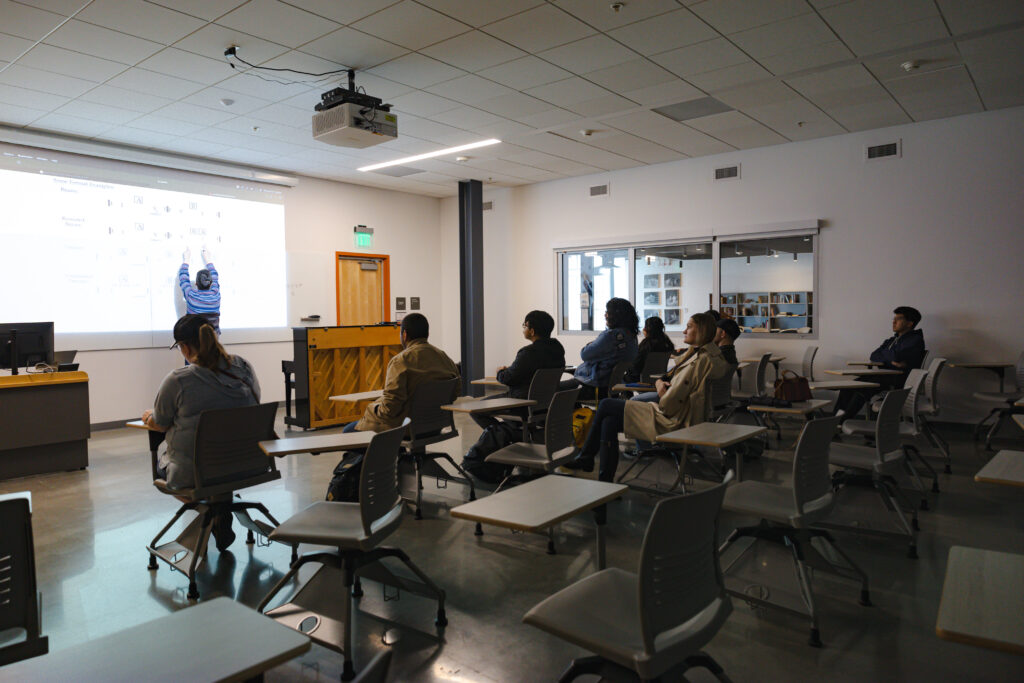
Black teachers: How to recruit them and make them stay

Lessons in higher education: What California can learn

Keeping California public university options open

Superintendents: Well-paid and walking away

The debt to degree connection

College in prison: How earning a degree can lead to a new life

Like many young people in California, I always aspired to graduate from college. Having spent much of my youth in the foster care system, I was proud to enroll in Pasadena City College in 2018 with plans to transfer to a four-year university.
After successfully finishing my first year of college, things changed quickly. I became involved in a serious domestic violence situation that derailed my studies. Little did I know that prioritizing my safety over my coursework would cost me my financial aid and bring my academic career to a halt.
I was crushed. Not only did I have to deal with the aftermath of those traumatic events, but I also had to find a way to regain good academic standing at school. I was leaning on NextUp — a California Community Colleges program that supports former foster youth students throughout college — to navigate this confusing process when I learned that the reason I lost my financial aid was due to a flaw in California law.
To maintain state and federal financial aid eligibility, students must make “satisfactory academic progress,” or SAP, standards every year. Of course, students who receive financial aid should make their best effort to maintain their GPA and make progress toward a degree. Unfortunately, current satisfactory academic progress policies don’t take into account the realities that hamper many students’ progress toward a postsecondary degree, such as issues with child care, work and family responsibilities or even emergency health situations.
Although federal law sets the minimum standards for satisfactory academic progress, California colleges and universities often create additional, more restrictive standards. Even more problematically, current state law does not set a consistent requirement for institutions to communicate to a student that they did not meet the standards nor outline the appeal process.
This means that for students who temporarily could not make their college’s definition of satisfactory academic progress, access to a fair appeals process depends on the institution they attend, and many times it leaves students in limbo as enrollment deadlines pass without a decision.
In my case, I didn’t learn that I had failed to meet the standard until my advisers at NextUp notified me when I tried registering for classes in fall 2019, and I eventually was forced to skip that semester because I wasn’t able to get my financial aid reinstated in time to stay enrolled.
I had to go through the appeals process again earlier this year after my father passed away and barely had my eligibility reinstated in time to complete my final year. I was lucky, especially knowing that some institutions accept very extreme situations for student appeals — like the death of a family member — but seemingly exclude other, equally distressing hardships.
It’s simple. If low-income students lose access to their financial aid, they lose access to higher education, period. However, many existing satisfactory academic progress standards are creating barriers for students that benefit the most from Cal Grant and Pell Grant funding.
In the end, it took me five years to complete an associate degree program, but I am proud to say that I will be continuing my studies this fall at California State University, Northridge. I recognize, though, that I’m one of the fortunate ones who was able to navigate the appeals process thanks to the support I received from NextUp, but I know many of my peers who didn’t have the same resources simply gave up.
In fact, 87% of community college students who did not meet the standards for two consecutive terms either dropped out or lost their financial aid eligibility. That is a huge loss for these students, their families and the state because estimates show that by 2030, 40% of all jobs in California will require at least a bachelor’s degree.
Thankfully, the California Assembly passed Assembly Bill 789, a bill that would modernize satisfactory academic progress policies and eliminate barriers for students, especially from economically and racially marginalized communities. The bill is now in the Senate, and if passed, would set minimum institutional communication standards to students regarding status and appeals processes, prevent colleges and universities from imposing additional requirements that are more restrictive than federal requirements, and expand opportunities for students to regain financial aid after a previous failure to meet satisfactory academic progress standards.
The passage of AB 789 would help struggling California students stay on their path toward earning a college degree and help build our state’s workforce of tomorrow. If passed by the Senate Appropriations Committee, California will be one step closer to removing the barriers I faced for the next generation of college students.
•••
Alexandra Lewandowski is a recent graduate of Pasadena Community College and an entering student at California State University, Northridge.
The opinions in this commentary are those of the author. Commentaries published on EdSource represent diverse viewpoints about California’s public education systems. If you would like to submit a commentary, please review our guidelines and contact us.

The overreliance on undersupported part-time faculty in the nation’s community colleges dates back to the 1970s during the era of neoliberal reform — the defunding of public education and the beginning of the corporatization of higher education in the United States. Decades of research show that the systemic overreliance on part-time faculty correlates closely with declining rates of student success. Furthermore, when faculty are… read more

Panelists discussed dual admission as a solution for easing the longstanding challenges in California’s transfer system.

A grassroots campaign recalled two members of the Orange Unified School District in an election that cost more than half a million dollars.

Legislation that would remove one of the last tests teachers are required to take to earn a credential in California passed the Senate Education Committee.
Comments (1)
Comments Policy
We welcome your comments. All comments are moderated for civility, relevance and other considerations. Click here for EdSource's Comments Policy.
Sophia Donato 9 months ago9 months ago
My husband tried to appeal his disqualification from financial aid because he was the victim of identity theft as someone performed poorly in academics thru fraudulent activities trying to get his monies. San Joaquin Delta College in Stockton would not believe him despite the police reports etc. and when he tried to appeal and file grievances, he was either ignored or gave the run around over and over. There has to be someone who oversees … Read More
My husband tried to appeal his disqualification from financial aid because he was the victim of identity theft as someone performed poorly in academics thru fraudulent activities trying to get his monies. San Joaquin Delta College in Stockton would not believe him despite the police reports etc. and when he tried to appeal and file grievances, he was either ignored or gave the run around over and over. There has to be someone who oversees the colleges and institutions because the way they treat the students sometimes just isn’t right and they suffer no consequences for doing so.